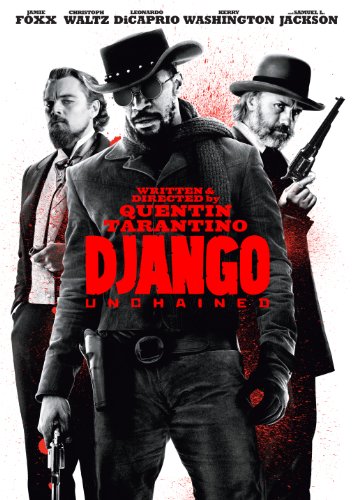All Nonfiction
- Bullying
- Books
- Academic
- Author Interviews
- Celebrity interviews
- College Articles
- College Essays
- Educator of the Year
- Heroes
- Interviews
- Memoir
- Personal Experience
- Sports
- Travel & Culture
All Opinions
- Bullying
- Current Events / Politics
- Discrimination
- Drugs / Alcohol / Smoking
- Entertainment / Celebrities
- Environment
- Love / Relationships
- Movies / Music / TV
- Pop Culture / Trends
- School / College
- Social Issues / Civics
- Spirituality / Religion
- Sports / Hobbies
All Hot Topics
- Bullying
- Community Service
- Environment
- Health
- Letters to the Editor
- Pride & Prejudice
- What Matters
- Back
Summer Guide
- Program Links
- Program Reviews
- Back
College Guide
- College Links
- College Reviews
- College Essays
- College Articles
- Back
Django Unchained MAG
I've recently been rereading The Adventures of Huckleberry Finn and a few months ago saw “Lincoln.” Huckleberry Finn provides a satirical, biting commentary on Southern society while “Lincoln” tells how the great emancipator got the 13th Amendment passed. Quentin Tarantino's latest film “Django Unchained” seems sort of a combination of the two, with much more violence, biting dialogue, and stylized as a Western.
Both “Lincoln” and “Django Unchained” are great movies in very different ways. Steven Spielberg's film is a convincing, absorbing biopic about ending slavery whereas Tarantino's approach is more off the wall. While the movies are aimed at different audiences, both are successful and “Django” would be very high on my top 10 list.
Like “Inglourious Basterds,” “Django Unchained” is a history lesson gone wrong. The film begins in 1858, two years before the Civil War, in Texas. Django (Jamie Foxx), a slave held by a few traders, is saved by a German bounty hunter named Dr. King Schultz (Christoph Waltz), who needs Django's help in capturing the Brittle brothers, criminals wanted for murder. Soon after catching the brothers and many other criminals, Django and Waltz attempt to find Django's wife Broomhilda (Kerry Washington), who works as a house slave for a ruthless Mississippian plantation owner named Calvin Candie (Leonardo DiCaprio).
The inspiration for “Django Unchained” comes from the spaghetti Westerns during the ླྀs and ྂs (the title and protagonist's name is based Sergio Corbucci's Django and its star, Franco Nero, has a cameo in the film). Tarantino's favorite film is, in fact, Sergio Leone's “The Good, The Bad, and The Ugly,” the most famous and best spaghetti Western there is.
Tarantino riddles the film with many of his other trademarks. It has a fantastic soundtrack, ranging from Western style music to rap. It includes Tarantino regulars Waltz and Samuel L. Jackson. The dialogue is superb and written as only Tarantino could. Who else could create a scene where a bunch of pre-KKK members rallying up a riot would complain about the holes in their masks?
The violence in “Django” is actually fairly tame by Tarantino's standards until the final 30 minutes Although I'm usually fine with violence, there are even a few scenes where I looked away. The movie features a lot of profanity and the characters repeatedly shout out the n-word. Some critics (including director Spike Lee) have attacked Tarantino and declared that the movie is offensive. But I believe Tarantino has a powerful impact on the audience. He doesn't sugarcoat slavery but depicts it as gruesome. The slaveowners aren't shown very nicely here, and the slaves are shown as the oppressed. If the movie wasn't as violent or profane, it wouldn't have been as controversial.
As with all Tarantino films, the acting is top notch, with the exception with Tarantino's cameo. Jamie Foxx gives a great performance as Django, who reminded me of Clint Eastwood's “Man with No Name.” Christoph Waltz is deserving the Oscar he received and is fantastic as Schultz, providing both humor and action. Samuel L. Jackson is also great and this is one of his best roles.
The strongest performance, however, is undoubtedly given by Leonardo DiCaprio. He's really frightening and rather disturbing as Calvin Candie. In one scene he has a giant outburst that feels completely real (he shatters a glass and I heard that he was actually bleeding, which has a powerful effect on the viewer).
“Django Unchained” is a long movie, stretching over two and a half hours (I heard the original cut was more than three), which is my only quibble with the film. There are no boring parts, but I feel some scenes could have been trimmed. Make no mistake, “Django Unchained” is a great movie and is marvelously entertaining. Tarantino has marked himself as one of the most consistent directors of all time and he does not disappoint here.
Similar Articles
JOIN THE DISCUSSION
This article has 0 comments.

